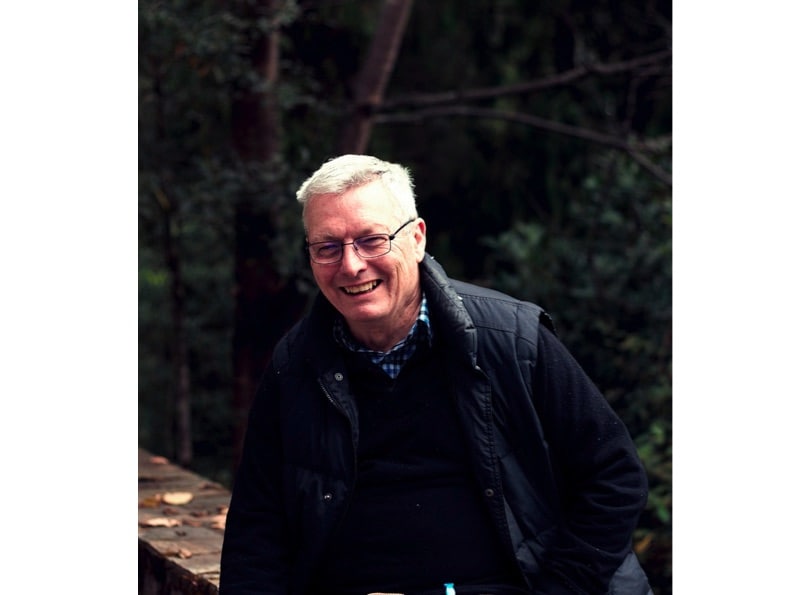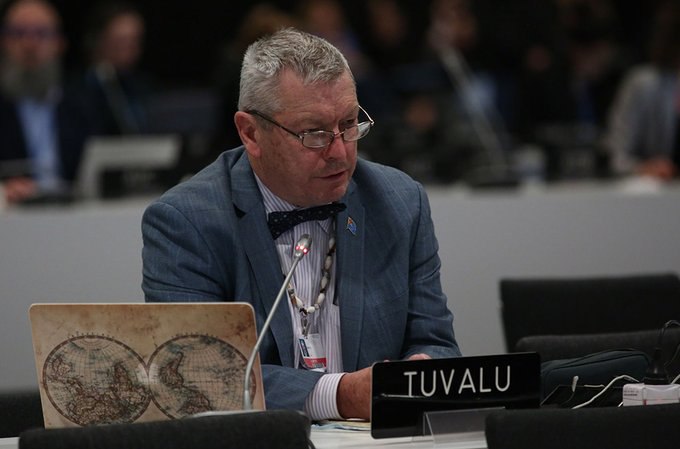Climate Crisis, Displacement, and Human Rights à la Special Rapporteur Ian Fry: Featured Speaker at WHRCF 2022
By Jana Milosavljevic
The World Human Rights Cities Forum (WHRCF), hosted annually by Gwangju City since 2011 with the aim of sharing the vision of “Human Rights City Gwangju,” sprung from the spirit of the May 18 Democratization Movement of 1980 and the Declaration of the Asian Human Rights Charter in Gwangju in 1998. The Forum will be held for the twelfth time this year from October 10–13 under the theme of “Climate Crisis and Human Rights.”
While addressing the four main agendas of the 12th World Human Rights Cities Forum – (a) What are the major human rights issues linked to the climate crisis? (b) Who are more vulnerable to the crisis? (c) What are innovative actions that can be taken to counter the crisis? and (d) How can we promote international solidarity to cope with the crisis? – a human rights-based approach to dealing with climate change as one of the biggest threats to human rights and a sustainable future will be at the heart of the Forum’s discussions, sharing best practices on climate change responses and mobilizing the participation of youth and various stakeholders.
To commence the dialogues, following the opening ceremony on the first day of the Forum, a roundtable discussion will be held, moderated by Mr. Kim Jung-sup, chairperson of the WHRCF Planning Committee and professor emeritus of the Gyeongsang National University Sociology Department, and gathering prominent speakers such as Mr. Kang Gi-Jung, mayor of Gwangju Metropolitan City; Ms. Irací Hassler, mayor of Santiago de Chile; Mr. Morten Kjaerum, director of the Raoul Wallenberg Institute of Human Rights and Humanitarian Law; and Ms. Lee Na-gyung, a Youth Climate Emergency Action activist. Among the guests invited to share their invaluable insights on the theme, the 12thWorld Human Rights Cities Forum’s most honored guest is Dr. Ian Fry, Special Rapporteur on the promotion and protection of human rights in the context of climate change.
The United Nations Human Rights Council (UNHRC) established the mandate of the special rapporteur on the promotion and protection of human rights in the context of climate change at its forty-eighth session in October 2021 (RES/48/14), following which Dr. Fry was appointed as the first to fill the role in March 2022 and began his duty in May 2022. Among others, the roles of the special rapporteur include studying and identifying the ways in which the adverse effects of climate change affect the full and effective enjoyment of human rights and make recommendations on how to address and prevent these adverse effects, as well as promoting and exchanging views on lessons learned and best practices related to the adoption of human rights-based, gender-responsive, age-sensitive, disability-inclusive, and risk-informed approaches to climate change adaptation and mitigation policies, all of which lead to making Dr. Fry a distinguished speaker at the 12th WHRCF.

Dr. Fry, who is of Australian and Tuvalu heritage, is an international environmental law and policy expert. He worked for the Tuvalu government for over 21 years and was appointed as their Ambassador for Climate Change and Environment between the years 2015 and 2019. His work primarily focused on mitigation policies for losses and damages associated with the Paris Agreement, Kyoto Protocol, and related accords.
Furthermore, Dr. Fry also teaches part-time at the Fenner School of Environment and Society of the Australian National University. He specializes in international environmental policy, international climate change policy, and environmental law. He is also the Pacific Regional Representative to the United Nations for the International Council on Environmental Law, a member of the IUCN World Commission on Environmental Law.
As the plenary speaker at the World Human Rights Cities Forum, he will be speaking on the topic of “Establishing Links Between Human Rights and Climate Change and the Responsibilities of Local and Regional Governments” at the roundtable, and also deliver the welcoming remarks at the Forum’s opening plenary session, co-hosted by Gwangju City, UN Human Rights, and UCLG CISDP, under the theme of “A Human Rights-Based Approach to Mitigating and Countering Climate Change – Local Solutions to a Global Problem.” As a preamble to his participation at the 12th WHRCF and in anticipation of his visit to Gwangju, Dr. Fry shared a couple of words with us.
“I recently visited Bangladesh and was astounded by the large number of people migrating from rural areas to the city because of the impacts of climate change. Increasingly, rural people are suffering more severe droughts, floods, storm surges, and saline intrusion making their lives very difficult. Many have little choice but to move to the cities, where they are often finding themselves in very difficult circumstances. Women and people with disabilities are particularly vulnerable in these situations. This is a common problem throughout the world. Climate change is forcing people to move to cities in the hope that their circumstances can improve.
“As Special Rapporteur, I am currently focussing my work on the impacts of climate change, the loss and damage that results from these impacts, and the resultant displacement of people and how this is affecting their basic human rights. This displacement of people due to climate change creates enormous challenges for local and regional governments. I am looking forward to attending the Forum in Gwangju to explore ways of addressing some of these issues.”
Photographs courtesy of Ian Fry / OHCHR.
The Author
Jana Milosavljevic was born and raised in Serbia. She currently lives and works in Gwangju as a GIC coordinator. She loves exploring new places, learning about new cultures, and meeting new people. If you are up for a chat, she can talk to you in Serbian, English, Korean, Japanese, or German.




